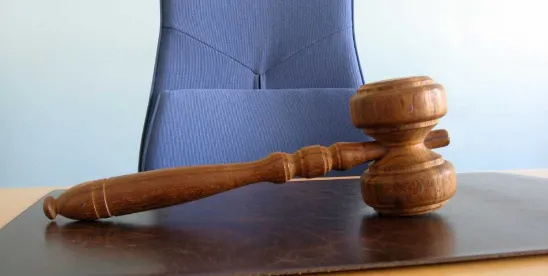Hey, TCPAWorld!
Be timely. Don’t skip procedural steps. And always bring receipts.
In SHANAHAN v. MFS SUPPLY LLC, No. 8:23CV475, 2025 WL 885265 (D. Neb. Mar. 21, 2025), both Terrence Shanahan (“Plaintiff”) and MFS Supply LLC, (“Defendant”) filed competing motions. Plaintiff filed a Motion for Leave to Modify the First Amended Class Action Complaint and Case Progression Order, aiming to revise the class definition based on new facts uncovered during discovery. Meanwhile, the Defendant filed a Motion to Compel, to Deem Admissions Admitted, and to Enlarge the Number of Interrogatories, requesting the Court to force Plaintiff to respond to discovery requests.
The Court denied both motions.
Background
On October 27, 2023, Plaintiff filed a class action complaint accusing Defendant of sending unsolicited telemarketing texts to consumers on the national Do Not Call Registry (DNC). Plaintiff claims he received two such texts promoting real estate lockboxes and asserts he never gave consent, with his number registered on the DNC since December 17, 2004.
Plaintiff seeks to represent the following class:
“All persons in the United States who: (1) from the last 4 years to present (2) Defendant texted more than once in a 12-month period (3) whose telephone numbers were registered on the Federal Do Not Call registry for more than 30 days at the time the texts were sent.” (Filing No. 1 at p. 4 ). Plaintiff’s Complaint contains one cause of action for violations of 47 U.S.C. § 227(c) by telemarketing to telephone numbers listed on the Federal Government’s National Do Not Call Registry.”
Id. at *2. Plaintiff asserts a single cause of action, alleging that the Defendant violated 47 U.S.C. § 227(c) by making telemarketing calls to phone numbers registered on the National Do Not Call Registry.
Defendant filed an answer broadly denying Plaintiff’s allegations and asserting multiple affirmative defenses, including statutory exclusions and claims that Plaintiff and the putative class consented—either expressly or implicitly—to receiving the messages, among others.
Following the parties’ Rule 26(f) Report, the Court set June 24, 2024, as the deadline for written discovery and July 8, 2024, as the deadline to file a motion to compel. The Case Progression Order required parties to first contact the magistrate judge and receive authorization from the Court before filing a motion to compel.
Discovery
On February 7, 2024, Defendant served discovery requests and later deposed Plaintiff on May 6, revealing new information allegedly not disclosed in prior cases, including that Plaintiff’s phone number was tied to his real estate license and business since 2006. Then on May 8, 2024, Defendant served a second set of discovery requests, which Plaintiff largely objected to as exceeding the interrogatory limit under Rule 33(a), being irrelevant, burdensome, vague, ambiguous, among other objections. After receiving Plaintiff’s responses, the parties engaged in an exchange that would entertain—or agitate—any litigator, and according to the Court, went something like this:
Defense counsel: “These are late.”
Plaintiff’s counsel: “No they’re not.”
Defense counsel: “The admissions were due on the 7th. You are late on the admissions. The remainder of the responses are woefully inadequate…”
Plaintiff’s counsel: “Thank you for your professional courtesy in waiting one day. The requests were all overly broad.”
Defense counsel: No response.
Id. at * 2-3.
Counsel informed the Court of a dispute over whether Plaintiff should be allowed to conduct class discovery, and shortly before the conference, Plaintiff moved to amend the Complaint. During the June 17, 2024, conference, the Court directed Plaintiff to file an amended motion after finding no good cause for missing the amendment deadline under Rule 16(b). Further, the Court declined to grant class discovery or allow a motion to compel, instead directing the parties to resolve the issues through further meet-and-confer efforts.
On June 26, 2024, Plaintiff filed an amended motion to amend the complaint, seeking to revise the class definition and establish standing based on information learned during Defendant’s deposition which revealed that Defendant had sent approximately 34,000 text messages to a nationwide list that included Plaintiff. Plaintiff sought to add the following allegations to his Complaint:
“Defendant obtained Plaintiff’s information when it downloaded a nationwide list of 17,000 (Seventeen Thousand) Berkshire Hathaway Ambassador real estate agents. Plaintiff was unaware and had no knowledge that Defendant obtained Plaintiff’s information. Defendant uploaded the list to Textedly, a text messaging platform, and sent out two text messages soliciting one of its popular products (lockboxes, which are locked boxes for keys that realtors share).
Plaintiff’s phone number ending in 1146 is Plaintiff’s only residential phone number, and Plaintiff does not have a ‘landline.’
Plaintiff’s phone number ending in 1146 is his personal cell phone.
Plaintiff owns a real estate business and maintains four separate phone numbers ending in 6224, 0737, 6430 and 0366 for operational purposes so that people do not call his personal cell phone for matters dealing with routine operation of the business.”
Id. at *3. Plaintiff also sought to amend the class definition as:
“All persons in the United States who: (1) are on the list of Berkshire Hathaway Realtors obtained by MFS Supply LLC; (2) whose telephone numbers were connected to cell phones; (3) registered on the Federal Do Not Call registry; (4) whose owners do not maintain any other residential telephone numbers; and (5) do have separate telephone number(s) for business purposes.”
Id. On July 8, 2024, Defendant filed a Motion to Compel, seeking additional interrogatories and to deem admissions admitted, alleging that Plaintiff’s counsel failed to provide documents, respond to interrogatories, or meet discovery deadlines.
Court’s Analysis of the Competing Motions
The Court starts with analyzing Plaintiff’s Motion to Amend his Complaint.
Under Rule 15(a), courts should freely grant leave to amend when justice requires, but if a scheduling deadline has passed, the party must first show good cause under Rule 16(b). Because Plaintiff filed his motion to amend more than three months after the March 15, 2024 deadline set in the Court’s scheduling order, he must first show good cause.
The primary measure of good cause is the movant’s diligence in trying to meet the deadline. Courts generally do not consider prejudice if the movant was not diligent, and absent newly discovered facts or changed circumstances, delay alone is insufficient to justify amendment. The Court found Plaintiff lacked good cause, finding that the facts were not newly discovered and could have been included earlier with diligence, nor did they alter the legal basis of Plaintiff’s claims which already addressed unsolicited texts sent despite being on the Do Not Call Registry. The Court also stated that granting the amendment after discovery had closed would cause delay, require further discovery, and unfairly prejudice Defendant.
Next, the Court analyzed Defendant’s Motion to Compel.
The Court denied Defendant’s motion for failing to follow procedural requirements, including not requesting a conference with the magistrate judge as required by the Case Progression Order and Civil Case Management Practices. Defendant also failed to show proof of a proper meet and confer, such as the date, time, or attachments any related communications between the parties. Plaintiff, on the other hand, submitted email evidence demonstrating that his counsel requested to meet and confer to resolve discovery issues, however, Defendant ignored the request and instead focused on filing the instant motion.
Moreover, the Court found that even if Defendant’s procedural failures were excused, the motion to compel still lacked the required evidentiary support to challenge Plaintiff’s production or objections, as local rules require supporting evidence for motions relying on facts outside the pleadings.
Specifically, the Court denied Defendant’s request for Plaintiff to respond to its second set of interrogatories, because Defendant exceeded the 25-interrogatory limit under Rule 33(a)(1) and failed to address the merits of Plaintiff’s objections or provide the original set of interrogatories.
Defendant’s request for production was denied as Defendant did not identify which of the 29 requests were deficient or explain why Plaintiff’s objections were invalid.
Finally, the Court denied the requests for admissions. Although Plaintiff’s responses were three days late, the Court, in its discretion, treated them as a request to withdraw deemed admissions and accepted them, finding no prejudice to Defendant and no impact on the merits of the case.
Takeaways
Scheduling Orders are not mere suggestions made by the Court and parties are expected to follow them. While the Court has the discretion to approve untimely requests to amend, the movant must show good cause under Rule 16(b), supported by diligence and not rely on preexisting facts that could have been included earlier.
Further, skipping procedural steps, such as a meet-and-confer, can kill your motion before its merits are weighed.
Finally, if you’re challenging discovery responses, make sure to bring receipts. Courts want precision—not general statements.




 />i
/>i

